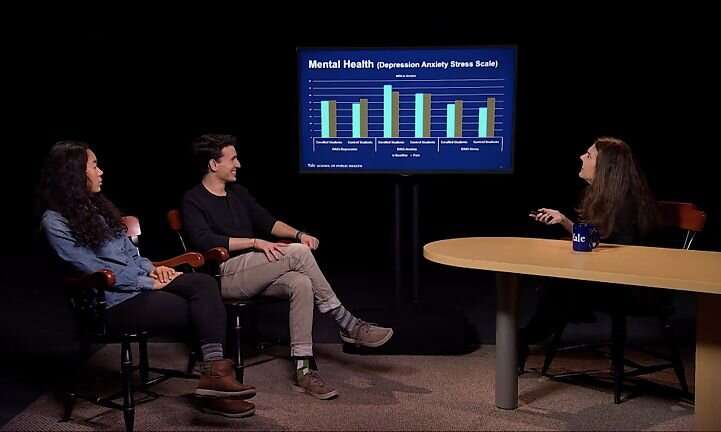
A new study from researchers at the Yale School of Public Health suggests that an online course on self-care during the COVID-19 pandemic significantly improved learners’ mental health outcomes.
In the paper, published in the American Journal of Health Education on June 4, the researchers tracked 216 learners who took a health behavior course on Coursera from March 2020 to this January. Their findings matched what they had expected: The measures taught in the course not only improved their physical wellbeing, but they also reduced the intensity of mental illness symptoms.
The health behavior course was delivered completely asynchronously over eight weeks. In the pre-recorded lectures, students were taught about various avenues through which health can be improved—from nutrition to physical activity to mental health. The course also included daily goals to put these measures into action. These goals were self-selected and ranged from an encouragement to drink two liters of water to a challenge to engage in daily physical activity.
“The class was designed to teach the science of behavior change, while also serving as an intervention for declining mental health that often occurs following matriculation in graduate school. We were very happy to learn that the intervention is also effective for community learners of various ages and backgrounds, even during the stressful coronavirus crisis,” said Marney White, Ph.D., M.S., professor of social and behavioral sciences and the study’s lead author.
At the end of each week, students were asked to assess their ability to meet their goals and how well the activities impacted their health. As measured by a reliable, 21-question test, the improvement to their depression, anxiety and stress was significant, the researchers found. Learners on the whole reported lower levels of all three by the end of the eight-week course, and they also reported having a healthier diet.
This study, they wrote, expanded upon prior work by gauging the effectiveness of a publicly available Coursera course on a diverse population of learners. Previous studies only sought to assess their impact on university students.
The study authors also noted future avenues for research. Large studies could help to eliminate potential biases associated with learners who enrolled in the course with the intention of improving their health. Outcomes could change with different Coursera courses, too. Moving forward, the researchers plan to examine the geographic and demographic trends in the improvements that the learners reported.
Source: Read Full Article